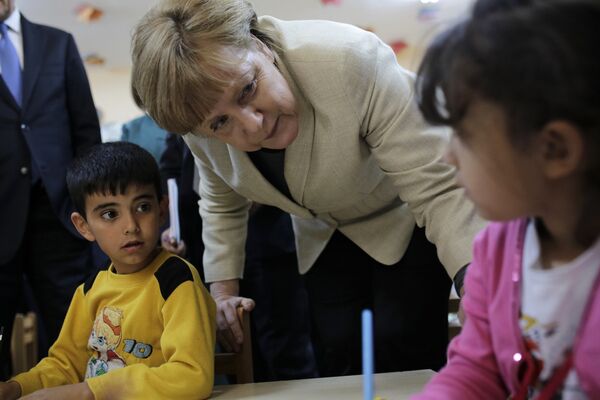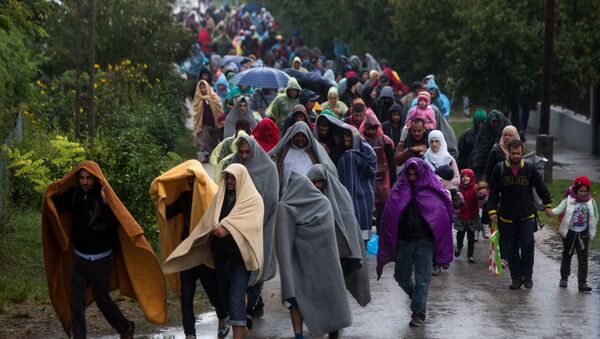The new EU Agency for Asylum is soon to replace the current much beleaguered Common European Asylum System.
The EU Civil Liberties Committee met on Thursday 8th December and backed providing the upcoming agency powers to assess how national governments apply EU legislation.
Reform of @EASO approved by @EP_Justice 36/9/6. Next step negotiation w/ @EUCouncil | @NiedermullerMEP pic.twitter.com/nMyUgty9W4
— LIBE Committee Press (@EP_Justice) December 8, 2016
This will include "an asylum intervention pool" of no less than 500 experts, which could be deployed to an EU country flouting the law.
"We need to give @EASO the means to fulfil its new responsibilities," says @NiedermullerMEP. Read more here ⇊https://t.co/baHK0gqkz4
— S&D Group (@TheProgressives) December 9, 2016
First announced in Brussels in May 2016, EU Commissioner for Migration and Home Affairs, Dimitris Avramopoulos, recognized that the EU's former immigration policies and systems for enforcing them, were not working.
"If the current refugee crisis has shown one thing, it is that the status quo of our Common European Asylum System is not an option. The time has come for a reformed ad more equitable system, based on common rules and a fairer sharing of responsibility," Mr. Avramopoulos insisted.
And it is that point — of a sharing of responsibility — that lies at the heart of the EU's latest venture.
So far, there has been a very wide disparity in how different EU members have responded to the mass arrivals of people throughout 2015 and 2016.
Taking the lead, German Chancellor Angela Merkel made the decision in the summer of 2015, to allow more than a million migrants.

For many of the refugees, as well as economic migrants, Germany is a desirable target country for resettlement, with it's relatively liberal social policies and state welfare provisions.
Merkel has faced a degree of blow-back opposition from home, with some members of the German public concerned that too many people were arriving too fast — making it difficult for local government to organize the resources necessary in time to help process and try to integrate new arrivals.
However, Mrs. Merkel's immigration decision was praised by EU officials as a positive humanitarian policy stance, embodied in Merkel's own words as "Wir schaffen das" or "We can manage it".
In sharp contrast, Hungary's Prime Minister Viktor Orabn, has poured scorn on the EU's immigration policies, dismissing them as naive.
Speaking in September 2016, he said: "If someone crosses the border illegally, they need to be sent back. "
The Hungarian Army has been deployed along Hungary's border, forcing migrants back into Serbia in a move that has been heavily criticized by human rights groups, like Amnesty International.

However, political leaders in some southern EU member countries, like Hungary and Bulgaria, argue that they shouldn't have to bear the brunt of the logistical strain of processing migrants.
First Vice-President of the European Commission, Frans Timmermans, has acknowledged that some EU countries feel that they have been unfairly left to handle many of the asylum requests, without enough support.
"We have seen during this crisis how just a few member States were placed under incredible strain because of the shortcomings of the present system, which was not designed to deal with situations of this kind. There's simply no way around it: whenever a Member State is overwhelmed, there must be solidarity and a fair sharing of responsibility within the EU."
Indeed, the EU's latest policy to try and manage the ballooning migrant crisis engulfing the bloc will live and die on whether its member states actually accept it.
With anti-immigrant populist parties gaining in strength across the EU, such new federal interventionist powers may not be received gladly, even by those — like Hungary — that it is supposed to help.
…




